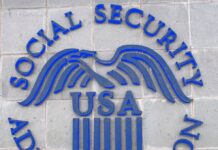The following is a news analysis.
Significant numbers of medical professionals say they do not want their own children to be vaccinated for Covid-19, despite government recommendations.
According to a poll conducted by Medscape, 39% of doctors with young children ages 5-11 say they do not want their children vaccinated for Covid-19, or are not sure about it. [30% would not vaccinate; 9% are unsure]
There was a similar result among pharmacists. Forty percent (40%) said they do not want their own young children vaccinated or are unsure. [31% would not vaccinate; 9% are unsure]
The “vaccine hesitancy” among parents who are nurses is even higher in the poll: 58% said they do not want their own kids to get the Covid-19 vaccine (45%) or are unsure (13%).
Some medical professionals have publicly expressed concern about Covid-19 vaccination because of uncertainty surrounding the medical treatment. Much information about the vaccines is a guessing game since the vaccines have not been on the market for very long and did not go through the normal testing and development processes.
Scientists say some side effects from vaccines and other medicine can take years to manifest, and are only detectable after a large number of people take them. That means the full risk-benefit profile of the Covid-19 vaccines cannot be known for some time.
Public health officials now say the original dosage intervals for Covid-19 vaccination were probably not right in order to be effective in conferring long term protection. They are guessing that a different interval might prove more effective, but are unsure as to what the interval should be.
Authorities say the dosage given to children is also a bit of a guess. Regardless of size and age, kids 5-11 are now recommended to get about half the adult dose.
In several instances already reported, pharmacists have administered the wrong dosage to children.
Even with significant reluctance among medical professionals, they were still more likely as a group to say they would vaccinate their own kids when compared to “consumers.”
Medscape says 49% of consumers who have kids 5-11 do not want them to get the COVID-19 vaccine.
Earlier this month, Centers for Disease Control (CDC) Director Rochelle Walensky endorsed the CDC Advisory Committee recommendation that 29 million U.S. children aged 5-11 be vaccinated for Covid with a smaller dose of the Pfizer/BioNTech vaccine than adults get.
Earlier, the same CDC advisory committee and top CDC scientists got caught falsely claiming that Pfizer and Moderna vaccine studies showed the vaccines benefit those who have already been sick with Covid and have natural immunity. The studies did not find that. There was no public accountability for the disinformation and no explanation of how it occurred and who was responsible.
Walensky also embarrassed her agency earlier this year when she falsely claimed that vaccinated people don’t spread Covid. CDC eventually corrected her statement.
A series of misinformation and sliding scale definitions of what supposedly make the Covid-19 vaccines qualify as “effective” have eroded public confidence in the public health agency and the advice given.
Initially, it was reported the vaccines were highly effective at preventing infection.
When that proved untrue, officials made a series of further statements that proved false in an attempt to show the vaccines are still highly effective, redefining what supposedly constituted “effectiveness.” They said Covid-19 vaccines would prevent spread of Covid, symptomatic illness, hospitalization, and death. However, it quickly became apparent that vaccinated people can spread, get sick, become hospitalized and/or die of Covid.
That’s when CDC reinstitute its mask recommendation even for those who are vaccinated.
Because the shots are not working well in preventing Covid-19 cases and illnesses, the CDC has recommended a third “booster” does, and even a fourth dose in less than a year for some.
Also eroding public confidence in CDC and other public health officials: since May 29, the CDC has covered up its estimate of naturally immune or previously-infected Americans. In late May, CDC put the number at more than 120 million. That was before the Delta version of the virus spread through many communities.
CDC has failed to properly respond to a Freedom of Information request on the number of previously-infected or naturally-immune Americans.
The agency has also declined to factor natural immunity into the statistics and data it uses to heavily promote vaccination in a one-sided fashion, grouping the unvaccinated who are naturally immune in with the unvaccinated who have not previously had Covid.
Yet data from Israel and other studies shows that natural immunity among unvaccinated people who have had a Covid-19 infection is far more effective and long-lasting than the immunity conferred by vaccines.
Also, CDC’s information listed under “possible side effects” from Covid-19 vaccine is misleading. It implies that all adverse events from Covid vaccines are relatively minor and short-lived, and just a part of the normal process. According to CDC: “These side effects are normal signs that your body is building protection and should go away within a few days.”
In fact, some side effects that have already been established and are warned about on the vaccine labels or by public health agencies around the world are very serious and/or deadly; and are not part of the normal process of building immunity.
There have been thousands of reports of illnesses after vaccination such as Guillain-Barre paralysis, which can be fatal; heart inflammation (including in young people) known as myocarditis and pericarditis; a myriad of nerve and muscle disorders; and serious blood disorders such as blood clots and platelet issues.
CDC also doesn’t point out that the full side effect profile for the vaccines it is promoting is unknown and cannot be know for some time.
Lastly, CDC says that the Pfizer vaccine was “more than 90% efficacy in preventing laboratory-confirmed COVID-19 infection in children 5 to 15 years old, and that the immune response in children ages 5-15 equaled the immune response in people 16 to 25 years old,” but fails to point out that the immunity is only believed to last for a matter of months. It also fails to acknowledge that, among young people who get Covid-19, virtually none of them suffer serious illness, and they are left with natural immunity.
The recommendation to vaccinate children is under criticism from many health experts since the rate of serious illness among kids who get Covid-19 is statistically near zero, and those who fight off infection naturally develop immunity that could be life-long, according to some studies and scientists.
CDC and other medical experts say that most cases of Covid are mild or asymptomatic, with no symptoms at all.
Here is the chart published by Medscape based on its survey of medical professionals.
Should the COVID-19 Vaccine Be Added to the List of Childhood Immunizations?
| Answer | Physicians (%) | Nurses/APRNs (%) | Pharmacists (%) |
|---|---|---|---|
| Yes | 39 | 25 | 32 |
| No | 37 | 52 | 42 |
| Not Sure | 24 | 23 | 26 |









